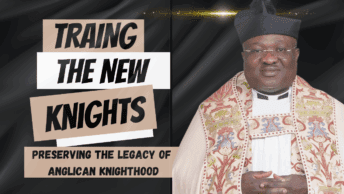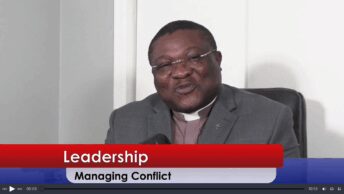By Ven. David C. Nwanekpe
Introduction
The question of authority in Christian teaching has shaped the very identity of different traditions. Roman Catholicism and Anglicanism, though sharing apostolic roots, take very different approaches. For Catholics, papal infallibility secures doctrinal certainty. For Anglicans, episcopal authority exists within the balance of Scripture, Tradition, and Reason, without claiming that any one bishop can speak without error.
This difference is not just theological—it directly affects how both churches govern, grow, and guide the spiritual lives of their members.
The Catholic Position: Papal Infallibility
At the First Vatican Council in 1870, the Catholic Church formally declared the doctrine of papal infallibility. This teaching affirms that when the Pope speaks ex cathedra (from the chair of St. Peter) on matters of faith and morals, he is preserved from error by the Holy Spirit.
This authority rests on the belief that Christ entrusted Peter and his successors with a unique guardianship of truth (Matthew 16:18–19). In practice, this elevates the papal office as the supreme guardian of doctrinal fidelity across the global Church.
The Anglican Position: Episcopal Authority Without Infallibility
Anglicanism, rooted in the Reformation, rejects centralizing ultimate authority in one office. Instead, bishops act as custodians of Scripture and tradition, but always within a framework of collegiality and accountability.
The Thirty-Nine Articles emphasize this humility: “General Councils… may err, and sometimes have erred, even in things pertaining unto God” (Article XIX). Authority is exercised through synods, councils, and collective discernment rather than papal pronouncements.
Hierarchical Differences
- Catholicism: A pyramid structure with the Pope at the summit, followed by cardinals, bishops, priests, and deacons.
- Anglicanism: An episcopal but synodical model, where the Archbishop of Canterbury serves as primus inter pares (first among equals), without absolute authority.
Where Catholicism places unity in one office, Anglicanism disperses authority through consensus.
Scripture and Theology
Catholics often cite Matthew 16:18 as evidence for papal authority. Anglicans, however, see it as a promise to the entire apostolic Church, pointing instead to passages like Acts 15, where decisions were made collectively by apostles and elders.
The Anglican conviction is that divine truth is safeguarded in Scripture, illuminated by tradition, and applied with reason—not vested in a single person.
Conclusion
Both Catholicism and Anglicanism strive to remain faithful to Christ’s teaching, but they diverge in how they safeguard truth:
- Catholicism trusts in the charism of one office.
- Anglicanism trusts in the Spirit’s guidance through the whole Church.
In short, no Anglican bishop is infallible, but all are called to be faithful stewards of the Word, accountable to Scripture, tradition, and the body of Christ.
📄 Download the full paper here: [https://davidnwanekpe.com/file/2025/08/The-Infallibility-of-the-Pope-vs.-The-Authority-of-the-Anglican-Bishop-A-Comparative-Reflection.pdf]








